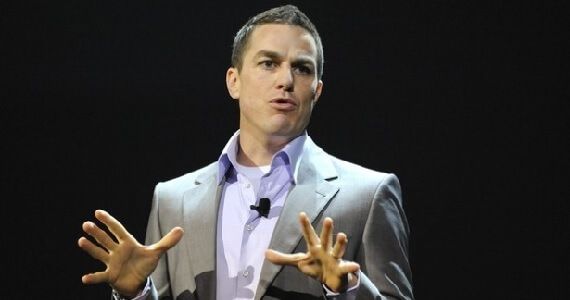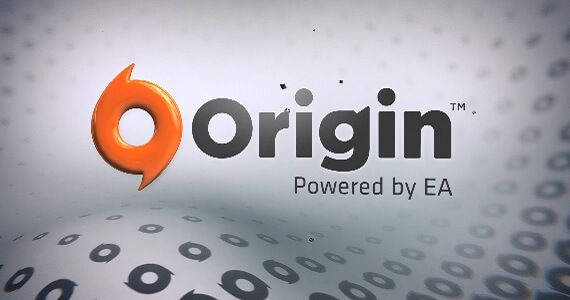The question of whether Electronic Arts' content delivery system Origin, which was launched in summer 2011 as a competitor to the market leader Steam, has been a success is a matter of some debate. There's certainly been more than enough positive response to keep it afloat, with 12 million downloads within its first year and 45 million registered users at the last count, but it hasn't gone without its fair share of criticisms - and many PC gamers say that they still prefer to use Steam as their primary game download service.
Origin was the subject of a fair bit of controversy when it was first launched, not least because a number of major EA games from franchises that had, up until that point, been made available on Steam were released on PC as Origin exclusives. Not only did this make many consumers feel strong-armed into installing it, there were also numerous concerns regarding evidence that Origin was collecting and sharing information from users' computers that was unrelated to the program's requirements.
However you may feel about it, Origin has seen enough success for EA to continue to consider it a powerful tool in their arsenal, and the publisher's head of EA Sports, Andrew Wilson, has been tasked with heading up the next stage of Origin's development. In an interview with Games Industry International, Wilson has outlined what he has planned for the service, as well as his history with it:
"I had the great fortune of being on Origin back in the day; I was part of the first core team that had this kernel of an idea of what Origin could be. It wasn't called Origin then - the subsequent team came in and branded it and built that service. But what we really had in mind in the early days was a service that made your EA games better; a service that made it easy to access games and update games. A service that enhanced the experience of playing games, a service that helped you connect to other friends playing games, and a service that ultimately did that across all platforms, not just PC."
COO Peter Moore recently brought up Origin during a defense of the company's nomination (which eventually led to a win, for the second year running) for The Consumerist's Worst Company in America award. At the time, Moore deflected the complaints about Origin, saying, "Some claim there’s no room for Origin as a competitor to Steam. 45 million registered users are proving that wrong."
The problem with that claim is that registered users do not necessarily equal active users, especially since Origin is a requirement for many popular EA games, and consumers are effectively forced to install it if they wish to play, for example, Mass Effect 3 or Battlefield 3 on PC. By contrast, Steam not only has a greater overall userbase (which was at around 54 million late last year), it also accounts for approximately 50-70% of all downloaded PC game sales, and many Steam users will have hundreds of games in their library.
Obviously EA isn't the first publisher to have attempted a similar system. Ubisoft games, even those downloaded from Steam, require Uplay to run in the background (though it mainly just sits in the corner quietly and occasionally spits out a free wallpaper or extra weapon). Microsoft also had a stab at a similar service with the massive headache that was Games For Windows - LIVE (thankfully now more or less defunct). The main difference between these systems and Origin, however, is that Uplay and GFWL work alongside Steam, whereas Origin is intended as a direct competitor.
Wilson seems willing to recognize the flaws in Origin's past service and the complaints that have accompanied them, and reassures gamers that the company has acknowledged their frustrations and plans to do better:
"We're not perfect, but we're getting better... There are a number of years of built-up perception around what Origin is and why we need Origin and the focus of Origin. I am not so naïve as to believe we will change that perception quickly... I want to re-iterate, it's very important for people to understand that we don't expect that all of a sudden people are going to get up and go 'Oh! Great! We now love Origin!' Some people really do like Origin, for all of those reasons; other people don't because of some less than optimal experience they've had. Initial experiences are hard to overcome, and that's going to take time.
"What we would say is, 'We get it. We understand it. We have heard, we have made some changes already in terms of how we do things, and we're looking at more changes that we'll talk about over the coming months that really are gamer-focused.'"
The perception that Wilson refers to is the idea that Origin is all about the transaction - when he claims that the actual buying of the game is "a very small part" of what the system is there for. His involvement in the redesign of Origin's functions and public image apparently ties in with his ability:
"... To take a step back and say OK, now that we have the plumbing what does 'make your EA games better' mean? What does 'make it easier to access those games' mean? What does 'enhanced gameplay' mean? What does 'connect with friends' mean in the context of Origin, and what does that mean for the PC, for console, and for mobile?"
Perhaps it might have been better to ask these questions before Origin was launched, not two years afterwards. It's a little disconcerting to have Wilson more or less admit that he's currently having to figure out what all the phrases that have been used in the marketing for Origin actually mean.
For now, however, it's best to give Wilson the benefit of the doubt and wait to see what he, and others at EA, do next with Origin. Many PC gamers would undoubtedly prefer to have all their games in a single library, rather than spread out across multiple programs, and therefore would not doubt prefer it if EA would simply start making all their games available on Steam again - especially if the actual sales really are such a small part of what Origin is for.
What is Origin for, exactly, if not purely for selling games? Wilson describes the content provider like this:
"We think of Origin, in this new world, as the gracious host of the party. It's not the center of attention; it's not the DJ, it's not the dance director, it's just a gracious host. It's someone who greets you at the door and ushers you in to where you want to go and points you in the direction of your friends so that you can go and party with them together."
Do you want to go to Origin's party? Are you already there? Or are you still nursing a hangover from the last Steam holiday sale?
-
Source: Games Industry International



